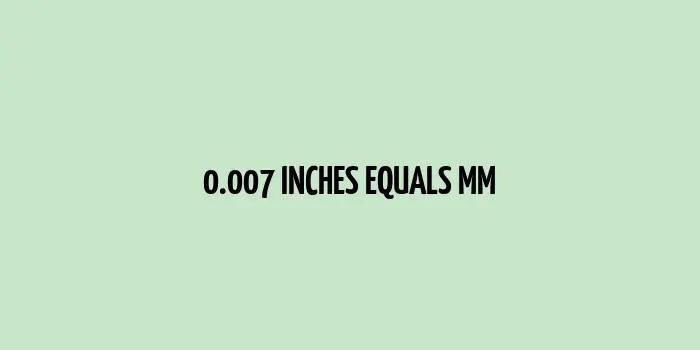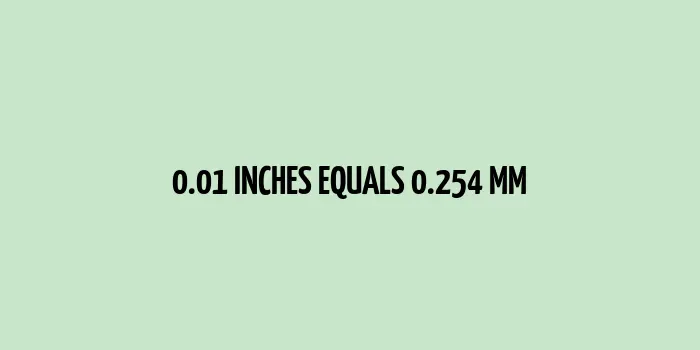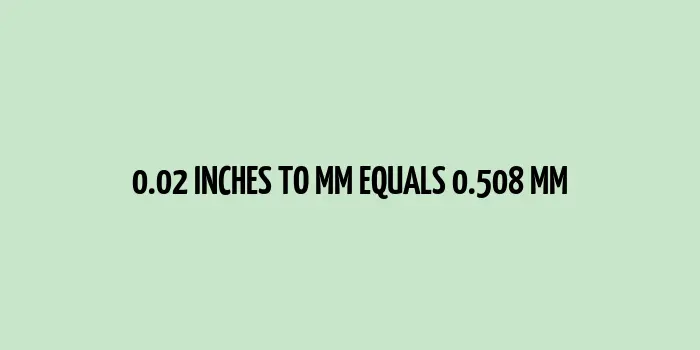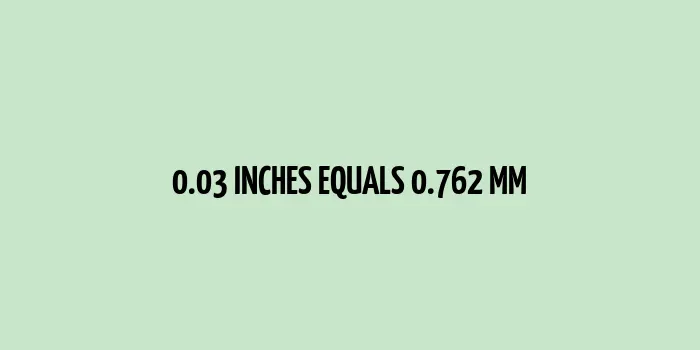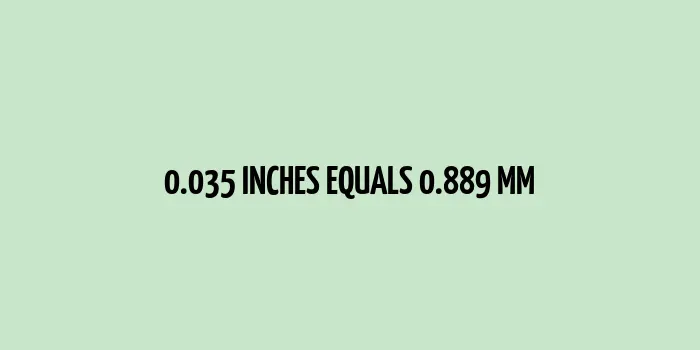1.75 inches to mm (Inches to Millimeters)
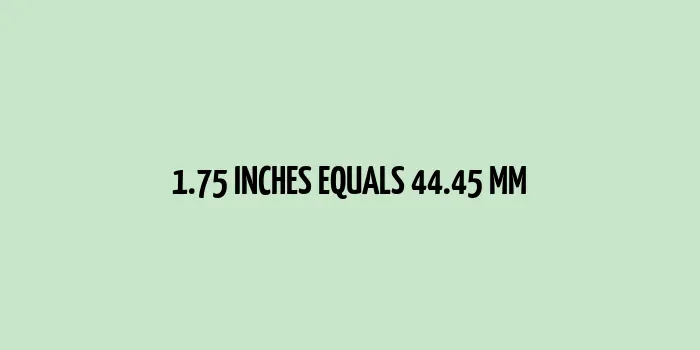
Here is how to easily convert 1.75 inches to mm
1.75 inches is equal to 44.45 millimeters (mm).
If you've been seeking an accurate conversion from inches to millimeters, you are in the right place. Whether you're engaged in a DIY project, performing scientific experiments, or simply curious, understanding how to convert inches to millimeters can be quite useful. Let's dive into the mechanics of this simple conversion and explore related knowledge to help you master the metric switch!
To start, converting 1.75 inches to mm is straightforward. You use the standard conversion factor where 1 inch equals 25.4 millimeters. By multiplying, you get:
1.75 inches x 25.4 mm/inch = 44.45 mm.
Why Conversion Accuracy Matters
Knowing the precise conversion from inches to millimeters is vital in many fields. For example, engineering and manufacturing often require highly accurate measurements to ensure the quality and fit of parts. Any small deviation can lead to significant issues, further illustrating why exact conversions are crucial.
The Metric Advantage
The metric system, used by most of the world, simplifies many scientific and everyday activities due to its decimal-based structure. Unlike the imperial system, where you deal with fractions, metric conversions like from 1.75 inches to mm involve straightforward multiplication, making it more intuitive for precision work.
Practical Applications
Consider if you were designing a part to fit in a piece of machinery. Suppose the specification required a component that's 1.75 inches wide. Converting to millimeters ensures the part matches global standards, avoiding costly manufacturing errors. In terms of global trade, especially in automotive and aerospace industries, accurate conversions are indispensable.
Statistical Insight
- A study revealed that inaccuracies in measurement contribute to 12% of manufacturing defects globally.
- Furthermore, incorrect conversions result in 18% of delays in scientific research, particularly in fields demanding high precision.
An Analogy for Better Understanding
Think of converting measurements like converting currencies. If you're traveling from the US (using the inch-based system) to Europe (using the metric system), you must know the exchange rate to ensure you have the correct amount of money. Similarly, accurate conversion from inches to millimeters ensures that your measurements remain correct and usable internationally.
FAQ Section
How do I convert inches to millimeters?
To convert inches to millimeters, multiply the inch value by 25.4. For instance, to convert 1.75 inches to mm, you calculate 1.75 x 25.4.
Why is it important to convert measurements accurately?
Accurate conversions are essential because even small measurement errors can lead to significant issues in manufacturing, engineering, and scientific research.
Where is the metric system preferred?
The metric system is preferred worldwide, especially in scientific communities and industries such as automotive and aerospace, making precise conversions, like from 1.75 inches to mm, critical.
External Resource
For more detailed information on measurement conversion and standards, you can visit the National Institute of Standards and Technology (NIST) website.
Accurate conversions, whether from 1.75 inches to mm or other measurements, play a foundational role in various professional and personal contexts. Mastering these conversions ensures efficiency and precision, supporting better outcomes in both specialized fields and daily activities.

